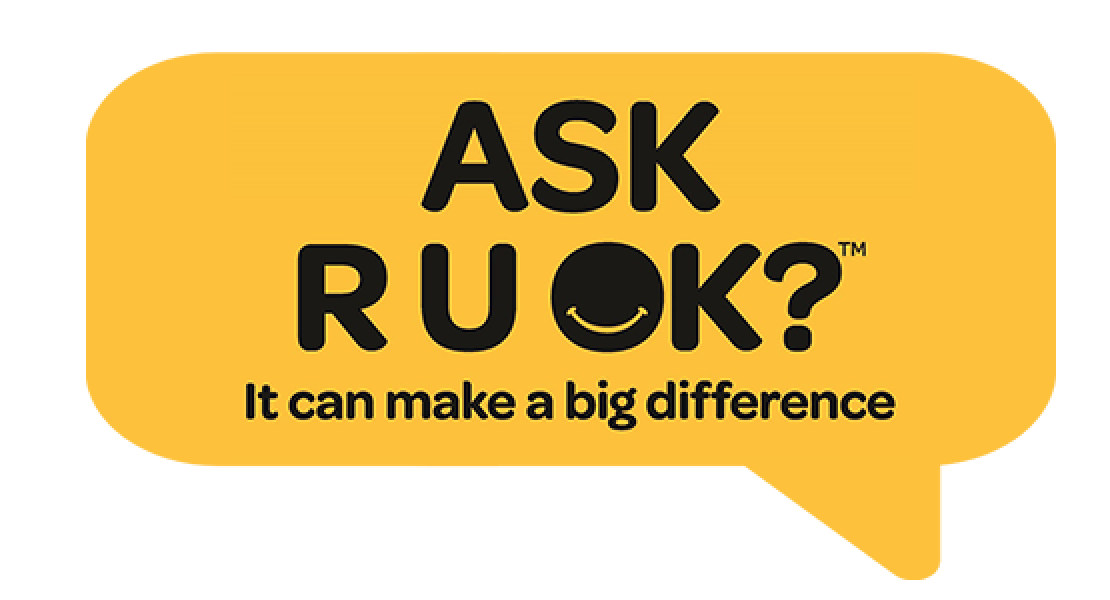
R U OK day is a national day of action. It is a day encouraging people to strike conversations between partners, family, work colleges, friends and even strangers to ask R U OK. It is a chance to reach out and start a conversation that could change a life.
Below we’ve gathered some ways you can check in with the people in your lives and ask R U OK? We have also included helpful suggestions to continue the conversation as well as ways to encourage action!
1. Asking R U OK?
You may choose to avoid asking the question R U OK, due to not knowing the appropriate way to address the question or in fear that you will receive the stock standard answer of “I’m fine”. However these conversations are important and can change a life, so give it a go because anything is better than nothing!
– Choose somewhere that is relatively private, making sure the person is comfortable.
– Make sure you have time to continue the conversation without cutting them short.
– Make sure you know that you can’t fix their problems, you are simply a friend offering support by listening to what they have to say.
Here are a few friendly conversation starters that can be used instead of directly asking someone R U OK.
-‘How have you really been going?”
– “Is there anything you would like to talk about?, i’m always here for you”
– “I have been thinking of you a lot lately, are you okay?”
If there is something in particular you have noticed about them, it is a good idea to include this in the conversation.
– “You haven’t been as active as you usually are, is everything okay?”
– “You don’t seem as chatty as usual, are you okay?”
Understand that the person may not want to talk about the stuff going on in their lives so avoid starting confrontation and instead say “you can always call or text me to chat if you would prefer”
2. Listening
Make sure to be open minded, ensuring you are listening to their response. Avoid interrupting them and when they have finished repeat what they have said in your own words to show you have listened. Follow this with asking “am I understanding you correctly?”
You can follow this up by asking “how long have you been feeling like this?” and encourage them to seek help.
Here are a few helpful resources and support services that you can access and share with this person.

3. Follow up
Make sure to check up on this person, this shows you genuinely care and reinforces their trust in you.
ASK things such as;
“How have you been since our last talk?”
“You have been on my mind lots lately, have things improved?”
Don’t judge the person if things haven’t improved or they haven’t found a way to cope with the situation yet. Remind them that you are there for them, listen to what they have to say and support them in any way that seems fitting.
You might like to offer to be with them while they contact professional help or offer to drive/ come with them to see someone.
Remember to go easy on yourself, you aren’t a trained psychologist. You are simply just a listener and friend. Also be sure to check in with yourself, R U OK?
More helpful resources
Get access to helpful resources for yourself and others.
Lifeline
– 24/7 crisis support line 131114
– Visit their website for more resources https://www.lifeline.org.au/resources/
Headspace, Youth Service
– Visit their website for information and support https://headspace.org.au/friends-and-family/mental-health/
Beyond Blue
-Visit their website to find a professional https://www.beyondblue.org.au/get-support/find-a-professional
In an emergency always call 000























